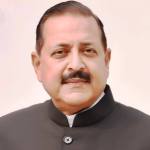National Bureau BuzzBytes
New Delhi, September 29: The Law Commission is currently developing a formula to synchronize all assembly elections by extending or reducing their tenures, thus allowing for the simultaneous conduct of state elections with the Lok Sabha elections starting in 2029, according to sources on Friday.
Given that the government has already established a high-level panel to explore the possibility of simultaneous elections for Lok Sabha, state assemblies, and local bodies, the Law Commission might also be tasked with incorporating the third tier of elections into its current mandate, which covers national and state-level polls.
Additionally, sources have revealed that the Law Commission is in the process of devising a mechanism to establish a common electoral roll for Lok Sabha, state assemblies, and local bodies. This move aims to reduce costs and the use of manpower, streamlining a process that is currently carried out separately by the Election Commission and various state election commissions.
The Law Commission’s report on simultaneous elections is not yet complete, as some issues remain to be resolved.
To facilitate the synchronization of various assembly elections, ensuring both state and Lok Sabha elections occur concurrently starting in 2029, the Commission under Justice Ritu Raj Awasthi may suggest adjustments to the tenures of legislative assemblies.
A mechanism is being developed to ensure that once Lok Sabha and assembly polls are synchronized, voters cast their ballots for both elections in a single visit to the polling booth.
Since assembly and parliamentary elections are held in phases, the Commission is working on the logistics to ensure that voters do not have to visit polling stations multiple times for the two sets of elections.
The Commission believes that holding assembly and parliamentary elections together is feasible and is focused on the modalities for the smooth execution of this massive democratic undertaking.
Currently, the Commission’s mandate is to propose methods for holding assembly and Lok Sabha elections together. However, the high-level committee under former President Ram Nath Kovind has been assigned the task of recommending how Lok Sabha, assembly, and local body elections (panchayat, municipalities, zila parishad) can be conducted concurrently.
Considering the terms of reference of the Kovind panel, it is possible that the Law Commission’s scope could be expanded to include local body elections alongside national and state elections.
One suggestion that the Law Commission might make is to hold three-tier elections in two phases within a year. In the first phase, Lok Sabha and assembly polls could be conducted, and in the second phase, local body elections could take place. This approach takes into account the varying climatic conditions across the country.
In August 2018, the previous Law Commission had endorsed the Modi government’s proposal for simultaneous elections to Lok Sabha and state assemblies, citing that it would prevent the country from being in a constant election mode. However, it had sought further public discourse on the matter before making a final decision. The draft report also stated that the exercise could not be carried out within the present constitutional framework and recommended changes to enable the simultaneous conduct of the two sets of elections.
In April 2018, the law ministry had requested the Law Commission to examine the issue of simultaneous elections for Lok Sabha and state assemblies.




